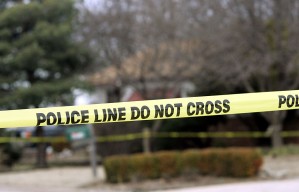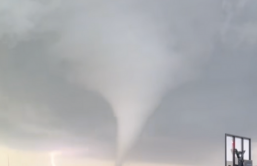The eastern Congo rebel group M23 has declared an end to a 20-month insurgency and said it will resolve all matters politically after Congolese military took the last two hills where the rebels remained, according to the Associated Press.
Two weeks of fighting led to the rebel group being cornered in woody hills by the border of Uganda and Rwanda. The group made its announcement to cease their fight hours after the Congolese government removed them from Tshanzu and Runyoni around dawn, Reuters reported.
The M23 President Bertrand Bisimwa released a statement on Tuesday saying the group will solve its grievances through "political means only," and ordered the group commanders to "prepare troops for the process of disarmament, demobilization and social reintegration on terms to be agreed upon with the Congolese government," according to the AP.
The disarmament of the rebel group, and their announcement to begin peaceful negotiations, is seen as a victory according to Congolese government spokesman Lambert Mende, according to the AP. Mende said about 100 of the rebels have been captured by government forces and M23 group's leaders including Sultani Makenga are on the run, the AP reported.
M23 began in April 2012 after the group, made of ethnic Tutsis, accused the government of failing to meet a peace agreement that went into accord on March 23, 2009, according to the AP. The group then seized control of Goma in November 2012.
"That they put down their arms and stopped fighting is a good thing," Diane Wamahoro, a 20-year-old waitress from Goma told the AP. "We are liberated but I'm not sure it's the end of the M23."
After peace talks stalled with the rebel group last month, the United Nations offered their support which led to the Congolese military quickly seizing multiple towns in a matter of days and running the rebel group out, the AP reported. The U.N. support led to a quick turn of events, and on Tuesday Mende said the last two rebel areas of Chanzu and Runyonyi had been captured.
According to the AP, a UN group of experts released a report claiming the M23 was believed to have been supported by the government of Rwanda whose president is also and ethnic Tutsi, like the rebel insurgents, though Rwanda denies aiding the rebels.
The M23 is just one discontent group of Tutsis in eastern Congo, and their demise could make room for other rebel groups to emerge, the AP reported.
Russ Feingold, the U.S. Congo envoy, said he welcomed the announcement, it was a "critical and exciting step in the right direction," adding the Congolese government needs to commit to ceasing military activity and that the disarming should commence immediately, the AP reported.
Feingold said the rebels should be protected once they disarm so that they are not left vulnerable to other armed groups, but those guilty of "serious crimes" should not get amnesty, the AP reported.








